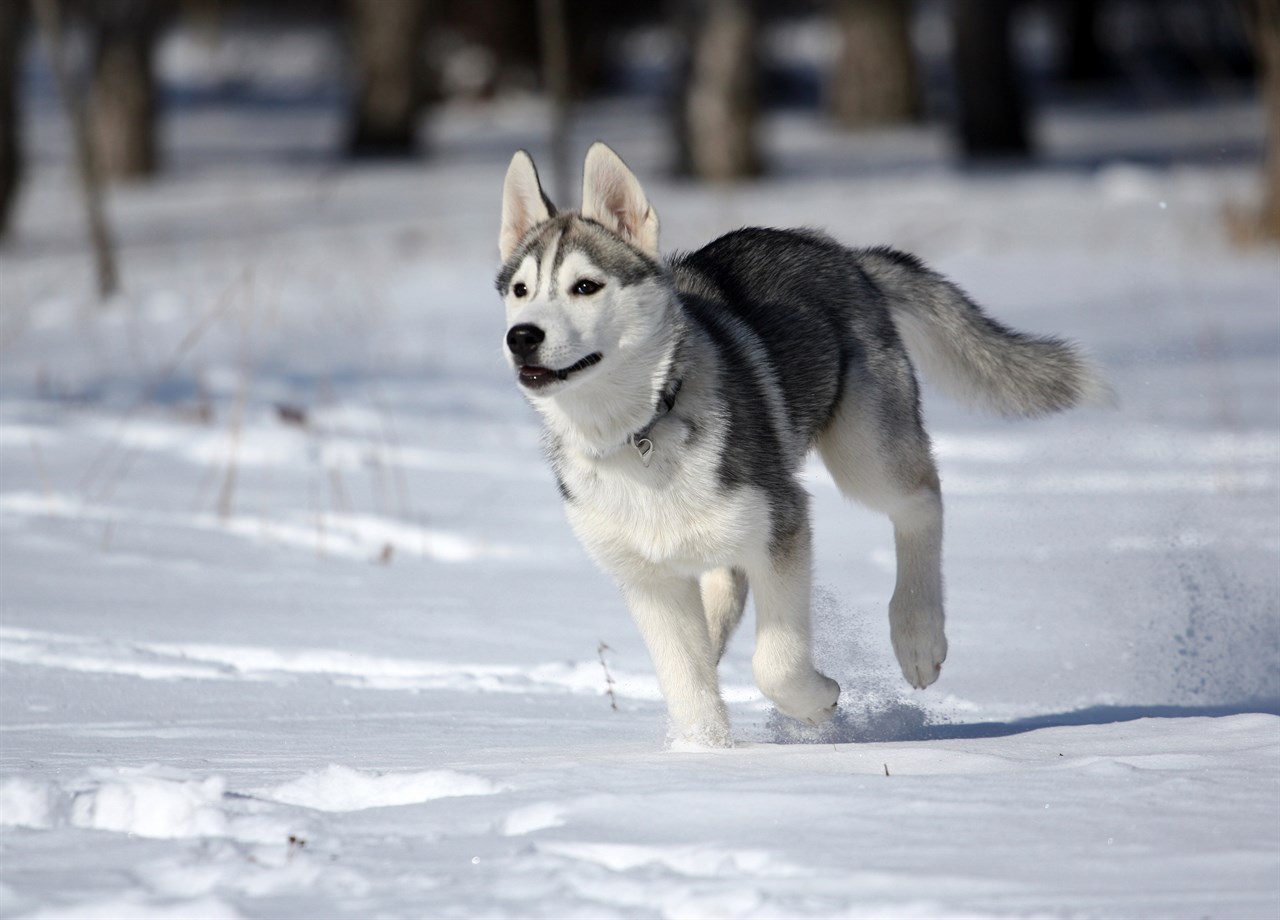Siberian Husky Feeding Habits and Food Requirements

Proper nutrition is essential for the health and well-being of your Siberian Husky. Understanding their feeding habits and dietary requirements is crucial to ensure they receive the right nutrition. Here's a guide to feeding your Husky.
High-Quality Dog Food
Choose a high-quality commercial dog food that is appropriate for your Husky's age, size, and activity level. Look for foods that list meat as the primary ingredient, as Huskies require a protein-rich diet.
Age-Based Feeding
- Puppy Stage: Puppies require specially formulated puppy food to support their growth and development. Feed them according to the package recommendations and divide their daily portion into several small meals.
- Adult Stage: Once your Husky reaches adulthood (around 12-18 months), you can switch to adult dog food. Typically, adult Huskies thrive on two meals a day.
Portion Control
Huskies are prone to overeating, so it's essential to measure their food portions and avoid free-feeding. Portion sizes should be based on your dog's size, age, and activity level. Consult your veterinarian for guidance on portion sizes.
Avoid Overfeeding
Huskies have a tendency to gain weight if overfed or given too many treats. Obesity can lead to various health issues, so it's crucial to monitor their weight and adjust their diet as needed.
Water
Always provide fresh, clean water for your Husky. They are active dogs and need adequate hydration, especially in warmer weather.
Avoid Human Foods
While it's tempting to share human food with your Husky, avoid feeding them table scraps or foods that can be toxic to dogs. Common foods like chocolate, grapes, onions, and garlic should be kept out of their reach.
Protein and Fat
Huskies thrive on a diet that is moderately high in protein and fat. Look for dog foods with a protein content of around 20-25% and a fat content of 10-15%.
Avoid Grain-Free Diets
Recent studies have linked certain grain-free diets to heart issues in dogs. It's generally recommended to choose a dog food that includes grains unless your veterinarian advises otherwise.
Transitioning Foods
If you decide to switch your Husky to a new food, do so gradually over the course of about a week to avoid digestive upset. Mix the old and new foods in gradually increasing proportions.
Regular Veterinary Check-ups
Consult with your veterinarian for guidance on your Husky's specific dietary needs. Regular check-ups can help you monitor their weight and overall health.
Special Dietary Considerations
Huskies can have specific dietary needs or allergies, so it's essential to be aware of any potential issues and work with your veterinarian to find the right food for your dog.
Proper nutrition is key to maintaining your Siberian Husky's health, energy, and longevity. By providing a balanced and age-appropriate diet, monitoring their weight, and being mindful of portion control, you can ensure that your Husky receives the nutrition they need to thrive.
Siberian Husky puppies for sale
- Find Siberian Husky puppies for sale in ACT
- Find Siberian Husky puppies for sale in NSW
- Find Siberian Husky puppies for sale in NT
- Find Siberian Husky puppies for sale in QLD
- Find Siberian Husky puppies for sale in SA
- Find Siberian Husky puppies for sale in TAS
- Find Siberian Husky puppies for sale in VIC
- Find Siberian Husky puppies for sale in WA